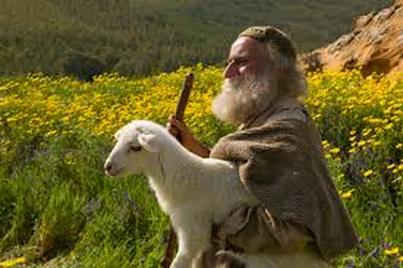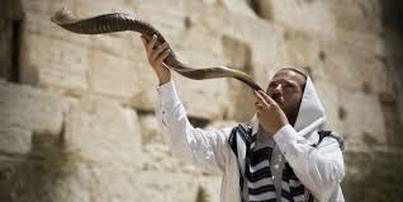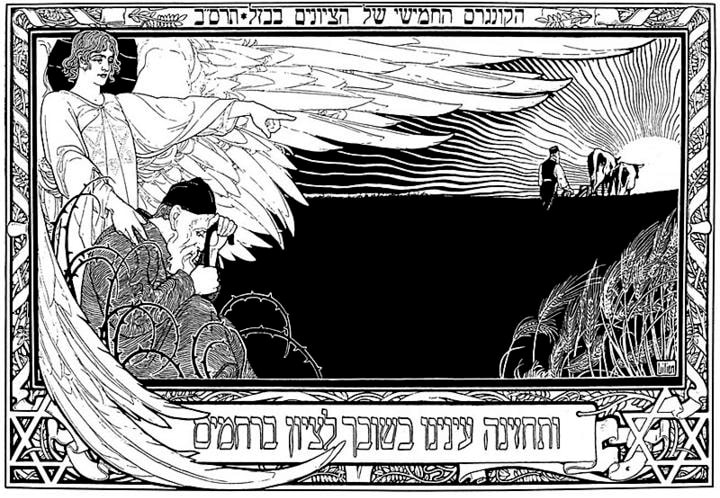May my teaching fall like rain. May my speech condense like dew, like light rain on blades of grass, or showers on growing plants.
(Deu 32:2 CJB)
RAIN AND DEW
"Words of admonition are analogous to rain.
When rain falls on trees and plants, growth is not noticeable immediately. It takes time for rain to have a visible effect. So too with admonition.
Very often we will try to help someone, but not see an immediate change. We must keep trying. If we are sincere, eventually we will notice an improvement."
(Rabbi Bunim of Parshicho).
I like the analogy given us in Deuteronomy 32:2:
Teaching = rain
Speech = dew.
What really is the difference?
The sages teach that Moshe's "teaching" was not his own. It was HaShem's Words uttered from the Heavens above "falling like rain". On the other hand, the sages relate the distillation of the dew as the admonitions of the Torah teachers; of their teachings throughout every generation; their advice on how to apply the Words of the Torah in our lives. The teaching comes from HaShem above, the distillation from teachers below.
This distillation is very important. The Master has compared us to sheep. Sheep are dependent animals. They need an earthly shepherd who shows them the way to the green pastures and the still waters. As such, we also need earthly shepherds who take us to the green and lush teachings of the Torah and to its still fresh water. In the days of Ezekiel, HaShem rebuked the shepherds/teachers of Israel for not doing their jobs. Here is what it says,
The word of Adonai came to me:
... Tell them, the shepherds, that Adonai Elohim says this:
'Woe to the shepherds of Isra'el who feed themselves! Shouldn't the shepherds feed the sheep? ... You don't strengthen the weak, heal the sick, bandage the broken, bring back the outcasts or seek the lost; on the contrary, you tyrannize them with crushing force. So they were scattered, without a shepherd, and became food for every wild animal -- ... "I am against the shepherds. I demand that they hand my sheep back to me. I will not allow them to feed the sheep, and they won't feed themselves either. I will rescue my sheep from their mouths; they will be food for them no longer." " 'For here is what Adonai Elohim says: "I am taking over! I will search for my sheep and look after them, myself. ... They will rest in good grazing grounds and feed in rich pastures on Isra'el's mountains. Yes, I will pasture my sheep; and I will let them rest" says Adonai Elohim. "I will seek the lost, bring back the outcasts, bandage the broken, and strengthen the sick. But the fat and the strong I will destroy -- ... Wasn't it enough for you to feed on the best pasture and drink from the clearest water? Did you have to trample the rest of the pasture and foul the remaining water with your feet? So now my sheep eat what you have trampled with your feet and drink water fouled by your feet.' Therefore here is what Adonai Elohim says to them: 'I will judge between the fat sheep and the thin sheep. Because you push them with your flanks and shoulders and butt all the weak ones with your horns, till you scatter them in every direction; therefore I will save my flock; ... " 'I will raise up one shepherd to be in charge of them, and he will let them feed -- my servant David. He will pasture them and be their shepherd.
I, Adonai, will be their God; and my servant David will be prince among them. I, Adonai, have spoken. (Eze 34:1-24 CJB)
This segment speaks for itself. I didn't want to put the whole section in this newsletter, but you can read it yourself in the Tanach.
*******
PATIENCE, THE MAIN TOOL OF THE FARMER, SHEPHERD … AND THE TEACHER.
Our own impatience is what makes us harsh with people. This impatience is born from pride, arrogance, and a condescending attitude towards others. All in all, as teachers we need to remember that like Moshe, the flock we tend to is not our own, but HaShem's; that we report to Him and that He listens to the cries of the flock against the hard-heartened shepherds.
The following testimony has been heard from a young man; it is the testimony about a good faithful and patient shepherd:
"A Rabbi once spoke for three full hours to a young man who was not Torah observant trying to convince him that he should attend the yeshiva. The fellow refused. Months later, the young man recalled the argument of the Rabbi and they began making sense to him. Finally, one year later, without having been in contact with that Rabbi, the fellow returned to the Rabbi and enrolled in his yeshiva."
The following story is from a personal experience.
The Levitical feasts are usually a very opportune time to introduce Messianic Judaism to people and at these special times, I am often invited to do so in local churches. A few years ago I was invited to the prominent First-Baptist Church in our town to teach and lead a Seder for the congregants of that church. I had been invited the year before to teach about it during the Passover season. A week after the event I was sharing the testimony with a friend who then right away reacted, "So that's it; they are probably done with Easter, Christmas, and all that stuff right?" I explained to my friend that these things take time. That like the sower of the parable, we simply sow the seed and that we have to wait. Some seed falls in sincere and honest hearts, while others fall in stony, 'brambles', or even rebellious hearts. Only time tells.
My friend's statement brought me to deeper thoughts. How many times do we do that with not only Torah students, but with our spouses, our children, our friends, etc ... Forgetting that HaShem may have been speaking to us about it for twenty years before we finally got it, we somehow expect that because we said it, others are to get it right away. This is analogous to wanting to sow a seed in the ground and expect the fruit to immediately appear.
Let's go to the parable.
"A farmer went out to sow his seed. As he sowed, some seed fell alongside the path; and the birds came and ate it up. Other seed fell on rocky patches where there was not much soil. It sprouted quickly because the soil was shallow; but when the sun had risen, the young plants were scorched; and since their roots were not deep, they dried up. Other seed fell among thorns, which grew up and choked the plants. But others fell into rich soil and produced grain, a hundred or sixty or thirty times as much as had been sown. (Mat 13:3-8 CJB)
The rest of the chapter tells us the interpretation, but this idea of spreading the Word being like a sower was taken up by Paul,
I planted the seed, and Apollos watered it, but it was God who made it grow. So neither the planter nor the waterer is anything, only God who makes things grow --(1Co 3:6-7 CJB)
In this passage, Paul works with others not as competitors, but as in a teamwork. He gave the teaching (Torah); Apollos expounded on the teaching (the dew), BUT, it is HaShem who gave the increase (the growing).
The growing or the results are in essence not your business. Our business is the teaching and the expounding. Though Isaiah the prophet we also have this promise that,
"As high as the sky is above the earth are my ways higher than your ways, and my thoughts than your thoughts. For just as rain and snow fall from the sky and do not return there, but water the earth, causing it to bud and produce, giving seed to the sower and bread to the eater; so is my word that goes out from my mouth -- it will not return to me unfulfilled; but it will accomplish what I intend, and cause to succeed what I sent it to do." (Isa 55:9-11 CJB)
THE STYLE OF A LEADER IN THE KINGDOM OF GOD
About our teaching and shepherding, blustery Paul also admonishes us (I suppose from personal experience),
... be patient with everyone. 1Thes 5:14
In his leadership admonitions to a young leader called Timothy, Paul insists that,
“A congregation leader must be above reproach, he must be
faithful to his wife,
temperate,
self-controlled,
orderly,
hospitable and
able to teach. ...
he must be kind and gentle. ”(1Ti 3:2-3 CJB)
As well as (and I would say that this one is very important today…)
... stay away from stupid and ignorant controversies -- you know that they lead to fights, and a slave of the Lord shouldn't fight. On the contrary, he should be kind to everyone, a good teacher, and not resentful when mistreated. (2Ti 2:23-24 CJB)
Ya'akov, the earthly brother of the Master who also became the first leader of the nascent messianic congregation in Jerusalem, in concert with Paul, exhorted the Israel believers with,
.. brothers, be patient until the Lord returns.
See how the farmer waits for the precious "fruit of the earth"
-- he is patient over it until it receives the fall and spring rains.
You too, be patient; keep up your courage; for the Lord's return is near.
(Jas 5:7-8 CJB)
TEACH, EXHORT, AND HASHEM WILL DO THE REST.
HIS WORD DOES NOT RETURN VOID.
IT ACCOMPLISHES THE PURPOSE FOR WHICH IT WAS SENT.
SHABBAT SHALOM
R' Gabriel




 RSS Feed
RSS Feed